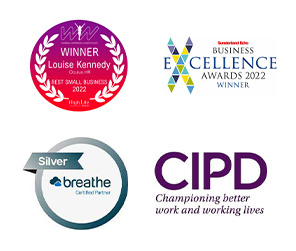Software as a service is big business, and there are many HR solutions on the market that can help you to streamline your processes, and save time and money. Plenty of vendors will be happy to come into your workplace and talk you through exactly how everything works, and how it could benefit your organisation.
The presentations are often slick and polished, and it’s easy to get excited about all the benefits that you could potentially realise. But before you sign on the dotted line, there are some very important questions that you need to get the answers to. Let’s take a look at them…
What are the ongoing fees?
The beauty of cloud-based software – something that is particularly popular right now, for a multitude of reasons – is that the initial set-up costs are often very affordable. Rather than building your own system from scratch, you’re tapping into one that already exists.
You need to do the calculations though, and look at the longer-term investment, and what that includes. Is there a flat monthly fee, or will that grow if you recruit more staff? Will the fee be reduced if you scale down? And what level of support is offered as standard?
Who will be responsible for delivering training to your staff?
Your staff will need to be brought up to speed with using your new software, and there are some vital considerations to make here. If the responsibility sits with you as the business owner, then you need to carefully examine the time investment that’s likely to require.
Equally, if the vendor offers training as part of the package, then there are questions to be asked. You’ll need to know what that’s going to look like in practical terms and the level of disruption that it may cause in your business, and it’s also wise to consider who exactly will deliver the sessions. They may outsource this element to an external training company, and that too can have pros and cons.
How will your employee data be protected?
This one’s particularly topical at the moment, with GDPR set to come into force. The information stored on HR systems is often highly sensitive, and of course there are legal responsibilities to consider, so security needs to be right at the top of your agenda.
Generally speaking, multi-layered software that is built around specific roles within your business tends to offer greater security. There should be functionality that ensures that certain information is only accessible to your senior leadership team.
What will the changeover period look like?
Right now, you may be using several different systems to manage your HR. You’ll need to consider what the changeover period will involve, and how much manual input from your team will be required. If you have to dedicate a member of staff to taking care of the admin, for example, then that could place a strain on your daily operations.
Ask questions around exactly how the changeover should be managed, the time investment that will be needed, and what the pathway to getting up and running is likely to look like.
Investing in HR software can be a great move for your business, but it does require careful planning and consideration. Your vendor does of course have a vested interest in selling their product, so it’s important to step back and look at all the potential benefits and risks.
If you’re looking for some impartial advice on what could work best for your business, then get in touch today to arrange your initial no-obligation consultation. We can help you to assess your options, and work out the best fit for your organisation.
